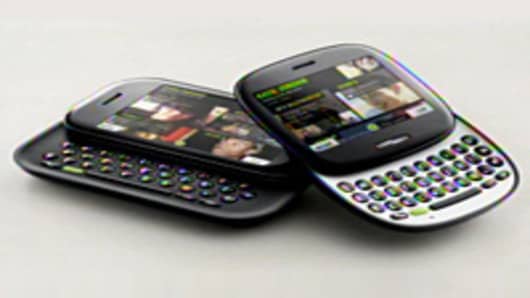This morning, at a splashy event at the trendy Mighty Club in San Francisco, Microsoft took the wraps off its new "Kin" smart phone, a device designed from the bottom up with social networking in mind, and in partnership with Sharp Electronics, Verizon and Vodaphone.
If you were expected a Microsoft Zune phone, or a phone specifically branded with the Microsoft logo, you're out of luck. Microsoft seems to be borrowing a page from the Google Nexus One playbook, which had Google working in partnership with HTC to release its own vision of what a smart phone ought to be.
Microsoft is doing much the same thing with Kin.
Sure the phone will have a Microsoft logo on it, but it's built by Sharp. It'll feature, for the first time, Zune capabilities on a smart phone, and it'll run Bing as its default search engine. The rest of the phone is decidedly about social networking. The device features new "experiences" called Loop, Spot and Studio, allowing the connected generation a way to keep connected no matter where they are, what they're doing, and whom they talk to.
There will be two versions of Kin, the One and the Two; the One is smaller, and features a 5 megapixel camera; the Two has a bigger screen, larger keyboard and a better, 8 megapixel camera that also shoots video. The whole phone revolves around its home screen, called the Loop, that brings together everything from Facebook, MySpace, Twitter, the web. The Spot is a place users can share everything in their world with one another, from photos and videos to status updates, messages and feeds. The Studio keeps control of texts, call history contacts, and everything else in your life.
It's all about social networking, but what Microsoft and Verizon have to figure out is whether that's enough of a differentiator for consumers to choose Kin over a Blackberry from Research in Motion or the iPhone from Apple. Fact is, this is a neat phone addressing some very key trends in the marketplace right now. But because the allure is largely software based, there's no reason why smart phone users can't add these kinds of capabilities to phones they already own, or turn a Blackberry or iPhone into a kind of Kin with a few customized tweaks.



